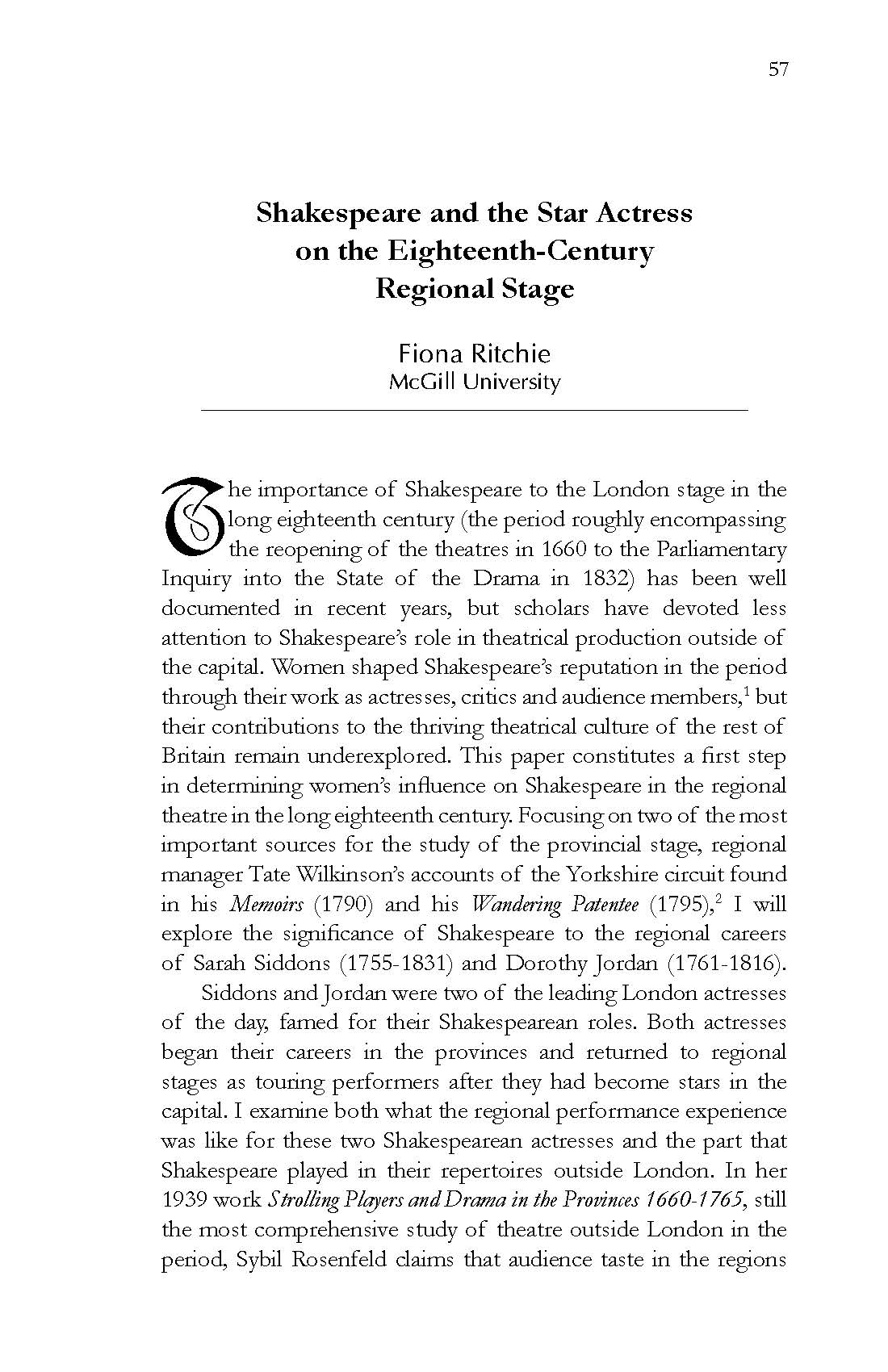Shakespeare and the Star Actress on the Eighteenth-Century Regional Stage
Main Article Content
Abstract
The importance of Shakespeare to the London stage in the long eighteenth century (the period roughly encompassing the reopening of the theatres in 1660 to the Parliamentary Inquiry into the State of the Drama in 1832) has been well documented in recent years, but scholars have devoted less attention to Shakespeare’s role in theatrical production outside of the capital. Women shaped Shakespeare’s reputation in the period through their work as actresses, critics and audience members,1 but their contributions to the thriving theatrical culture of the rest of Britain remain underexplored. This paper constitutes a first step in determining women’s influence on Shakespeare in the regional theatre in the long eighteenth century. Focusing on two of the most important sources for the study of the provincial stage, regional manager Tate Wilkinson’s accounts of the Yorkshire circuit found in his Memoirs (1790) and his Wandering Patentee (1795),2 I will explore the significance of Shakespeare to the regional careers of Sarah Siddons (1755-1831) and Dorothy Jordan (1761-1816).
